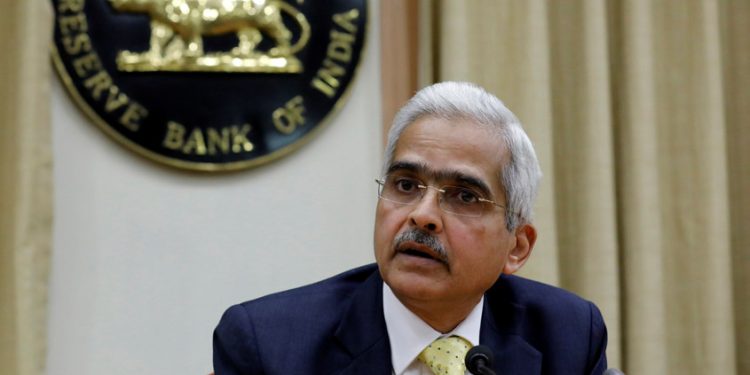Mumbai: Stubborn food prices are responsible for the slow pace of decline in overall retail inflation, argued Reserve Bank of India (RBI) Governor Shaktikanta Das while voting for a status quo in the policy rates during the MPC meeting earlier this month, according to the minutes released Friday.
Two external members, however, advocated for a rate cut to push growth in the monetary policy committee (MPC) meet, it said.
Majority of the members of the RBI’s rate-setting panel voted for continuation of the key interest rate unchanged to tame inflation, but two external members batted a cut to push economic growth further.
The six-member MPC voted 4:2 in favour of retaining the benchmark interest rate (repo) at 6.5 per cent for the eighth time in a row. The meeting took place from June 5-7.
MPC members Shashanka Bhide, Rajiv Ranjan (RBI executive director), Michael Debabrata Patra (RBI deputy governor), and Das voted to keep the policy repo rate unchanged at 6.50 per cent.
External members on the MPC — Ashima Goyal and Jayanth R Varma — had voted to reduce the policy repo rate by 25 basis points.
Retail inflation based on consumer price index (CPI) continued its downward slide to reach a one-year low of 4.75 per cent in May. It has seen sequential moderation since January 2024, albeit in a narrow range from 5.1 per cent in February to 4.8 per cent in April 2024.
According to the minutes of the MPC meeting, Governor Shaktikanta Das emphasised that stubborn food prices are responsible for slow pace of decline in overall retail inflation.
Headline CPI inflation is moderating, but at a very slow pace and the last mile of disinflation is turning out to be gradual and protracted, Das said in the meeting, as per the minutes.
“Food inflation is the main factor behind the grudgingly slow pace of disinflation. Recurring and overlapping supply-side shocks continue to play an outsized role in food inflation,” the governor said.
He also emphasised that normal monsoon may eventually lead to easing of price pressures in key food items.
Patra said the speed of the easing of inflation has been disappointing so far, even from a cross-country perspective. Food prices are persisting for too long as the principal
impediment to a faster disinflation.
While voting for status quo on repo rate, Rajiv Ranjan was of the opinion that the growth-inflation mix at the current juncture allows MPC to move more cautiously on the inflation front.
“Hence, we should not waver from our focus on price stability which remains so important for our long-term sustained growth outcome,” he said.
Bhide also said the rise in projected inflation rate above the 4.5 per cent mark in the second half of the financial year reflects the underlying price pressures, which, if not addressed, would not meet the policy goal.
While emphasising for a 25 basis points reduction in repo rate, Goyal said the growth is below potential and may slow further since consumption remains weak.
“Increasing income and employment is the only sustainable way to bolster consumption, as well as private investment. Transfers from a small percentage cannot give prosperity to a billion people. Reducing unemployment is important for political and financial stability,” she said.
External member Varma said in April MPC meeting he had expressed concern about the growth sacrifice in 2024-25 induced by restrictive monetary policy.
“It now appears that the maintenance of restrictive policy for unwarrantedly long will lead to a growth sacrifice in 2025-26 as well,” he said.
He further said professional forecasters surveyed by the RBI are projecting growth both in 2025-26 and in 2024-25 to be lower than in 2023-24 by more than 0.75 per cent, and lower than the potential growth rate (of say 8 per cent) by more than 1 per cent.
“This is an unacceptably high growth sacrifice considering that headline inflation is projected to be only about 0.5 per cent above target, and core inflation is extremely benign,” he said while voting for reduction in repo rate by 25 basis points.
PTI







































